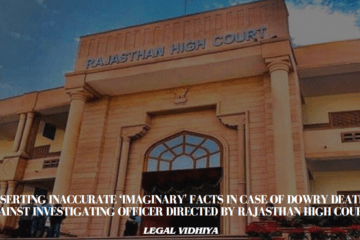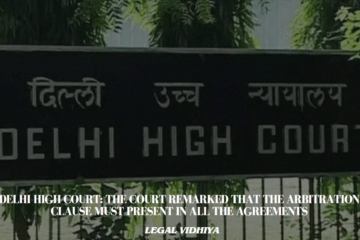
In a case that shook the corridors of justice, the High Court of Judicature at Madras rendered a significant verdict, addressing allegations of misconduct and integrity issues against a Judge. The proceedings unfolded against a backdrop of heightened scrutiny, as the judiciary once again grappled with the delicate balance between accountability and procedural fairness.
At the heart of the matter lay grave accusations, implicating the petitioner in acts that threatened the very fabric of judicial integrity. The Enquiring Judge’s Final Enquiry Report painted a pejorative picture, highlighting the petitioner’s involvement in a pivotal conference call, where assurances were purportedly made, casting shadows of doubt on the petitioner’s judicial probity.
As arguments echoed within the hallowed halls of the courtroom, the petitioner’s counsel vehemently contested the allegations, citing contradictions in witness depositions and emphasizing the necessity of stringent proof in disciplinary proceedings. They further underscored the overlooked findings of Mr. N. Authinathan, shedding light on concerns regarding the authenticity of audio files and the potential for tampering.
Conversely, the second respondent stood firm, asserting that the disciplinary procedures adhered to the letter of the law. They argued that the substantiated charges warranted the severe penalty of removal from service, as prescribed by the Discipline and Appeal Rules.
In a landmark pronouncement, the Hon’ble Administrative Committee delivered its verdict, decreeing the petitioner’s removal from service—a decision subsequently ratified by the Hon’ble Full Court. The judiciary’s verdict resonated with the resounding affirmation of upholding integrity and ethical conduct in public service, particularly among those entrusted with the solemn duty of dispensing justice.
The judgement reverberated far beyond the confines of the courtroom, underscoring the imperative of maintaining the highest standards of integrity among public servants. It delineated the fine line between the burdens of proof in disciplinary proceedings vis-à-vis criminal trials, emphasizing that a preponderance of probabilities suffices for punitive action in cases of misconduct.
Moreover, the case served as a poignant reminder of the indispensable role of due process and procedural fairness in disciplinary actions against public officials. It underscored the overarching principles of accountability and transparency, vital for preserving public trust in the judiciary’s integrity.
As the gavel fell, it marked not just the culmination of legal proceedings but also a reaffirmation of the judiciary’s unwavering commitment to upholding the sanctity of justice. In a world where integrity is the cornerstone of public service, this judgement stands as a beacon, guiding the path towards a more accountable and ethical governance paradigm.
Written by- Kaavya Gopal, PES University – 6th semester, intern under legal vidhiya.
Disclaimer: The materials provided herein are intended solely for informational purposes. Accessing or using the site or the materials does not establish an attorney-client relationship. The information presented on this site is not to be construed as legal or professional advice, and it should not be relied upon for such purposes or used as a substitute for advice from a licensed attorney in your state. Additionally, the viewpoint presented by the author is of a personal nature.




0 Comments